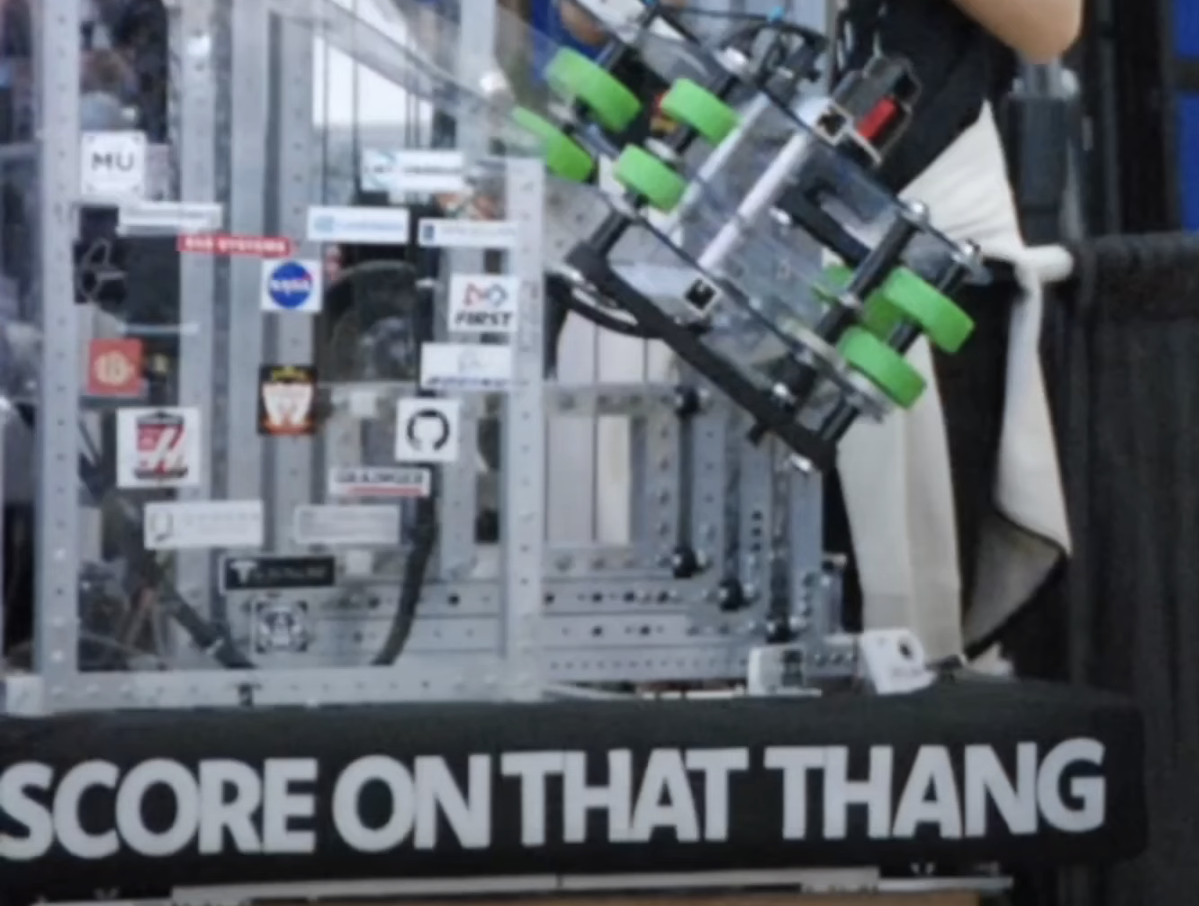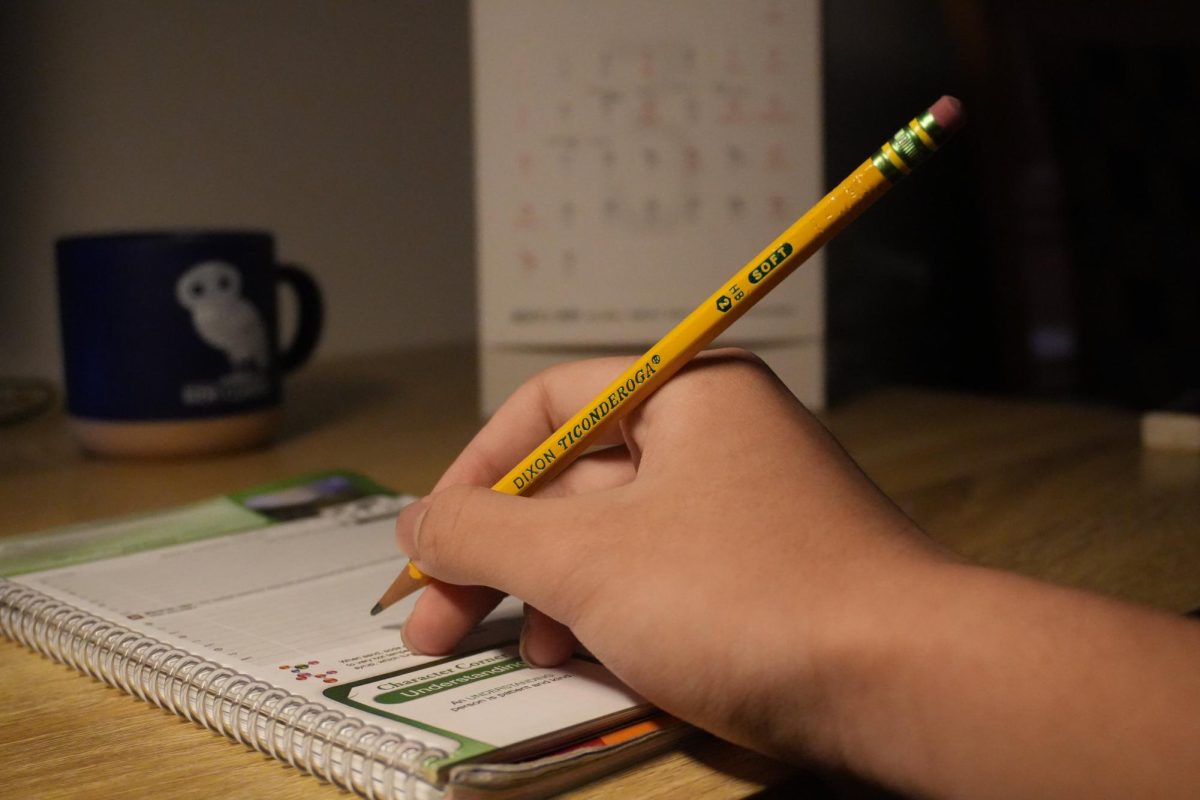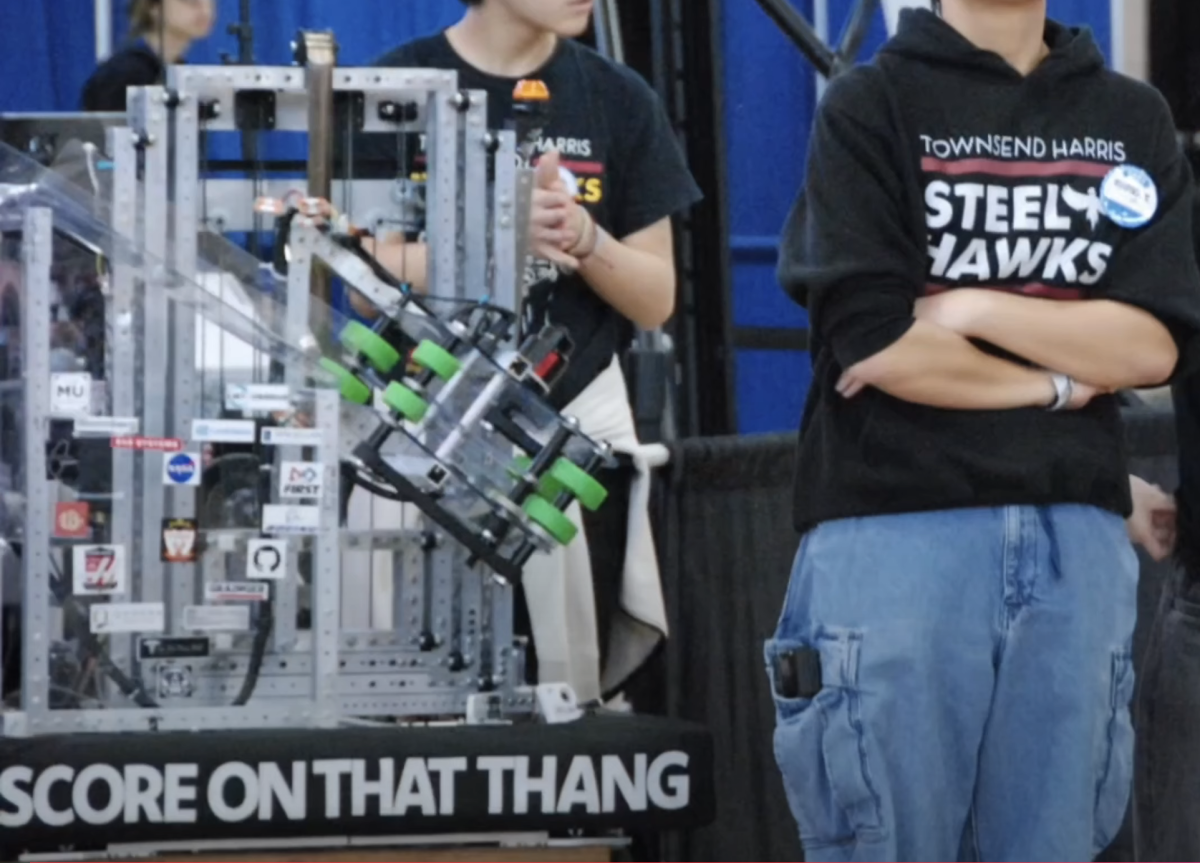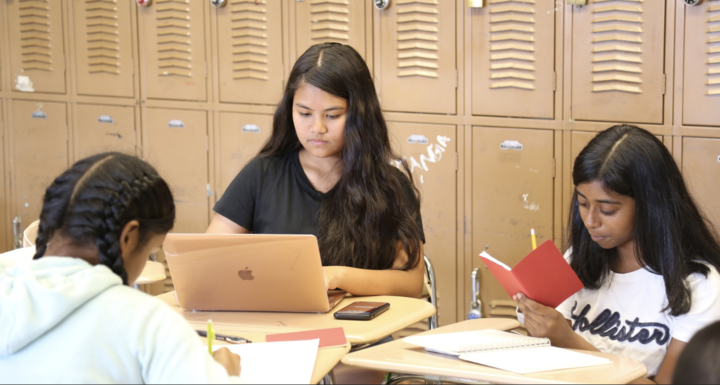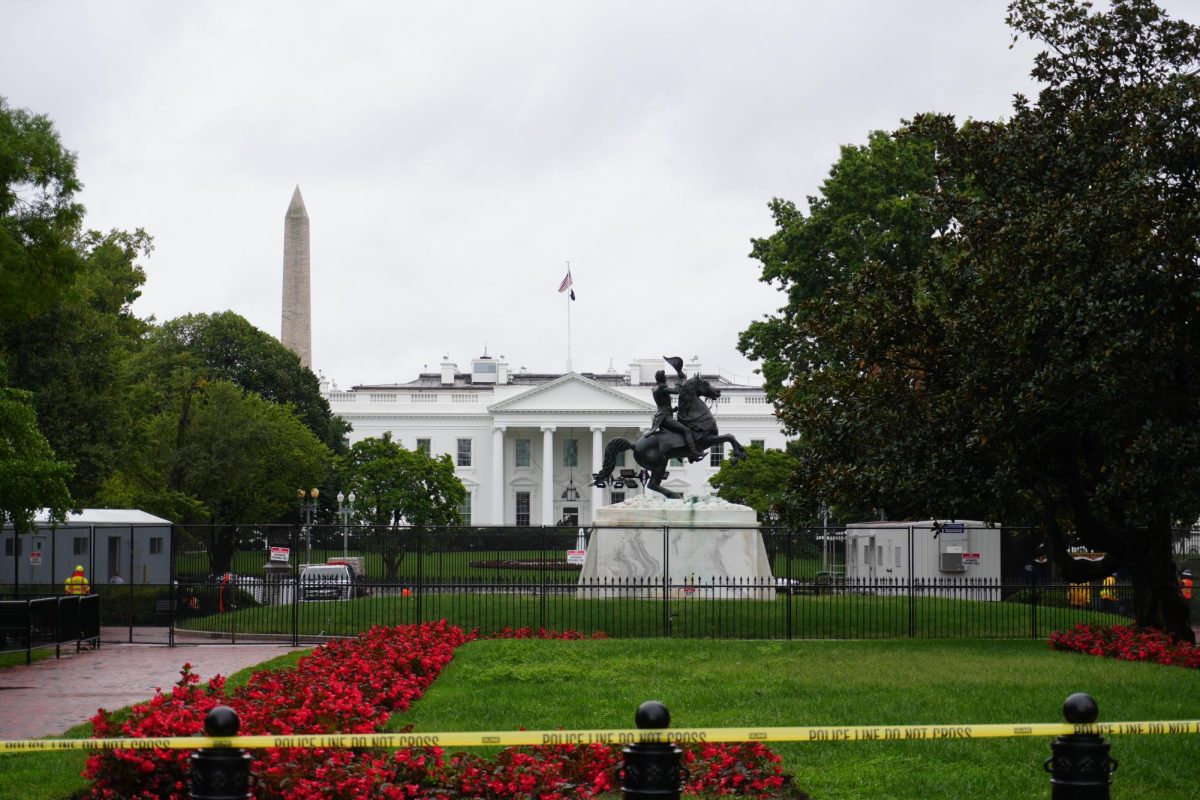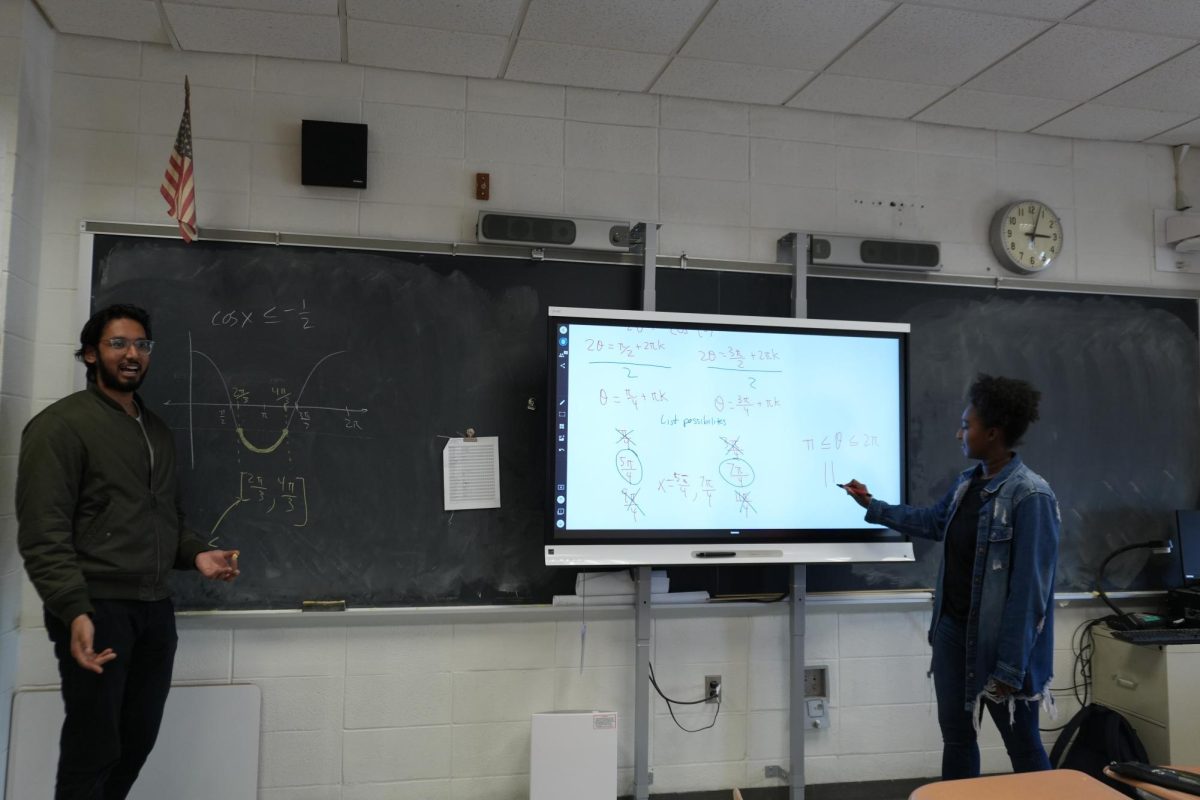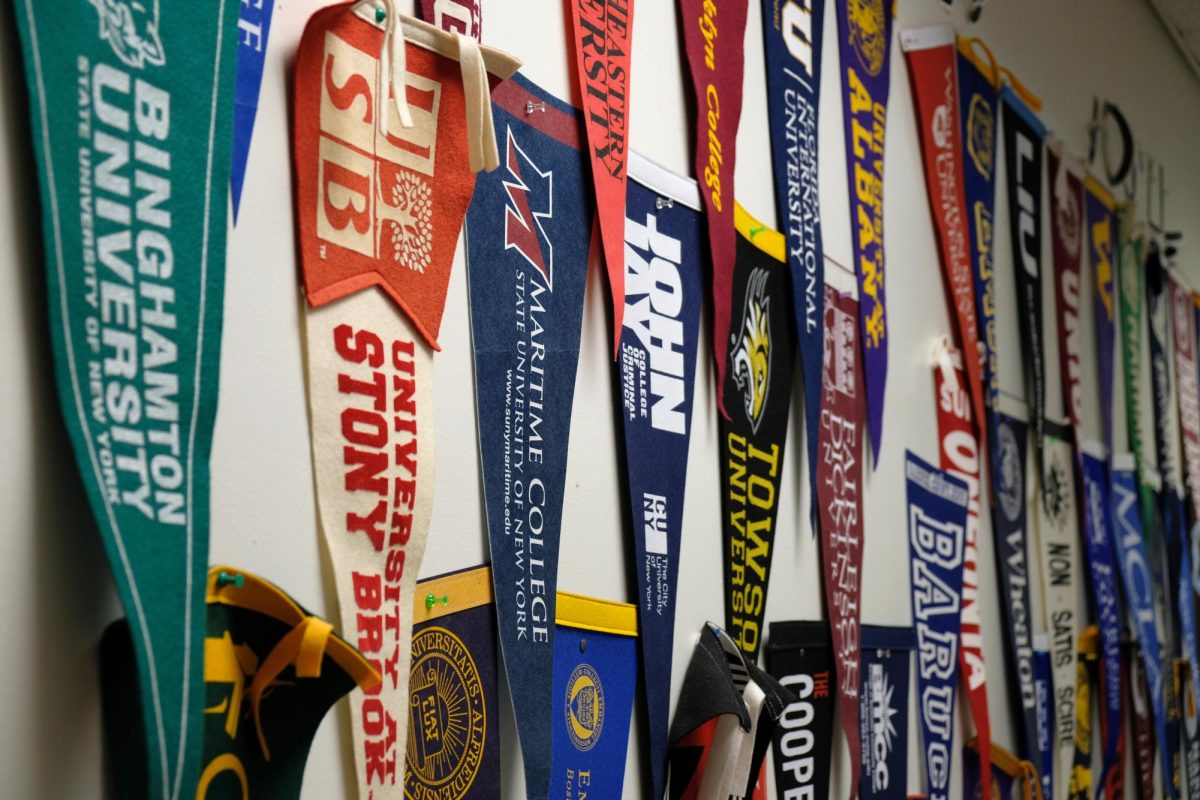
Last night, The Classic reported that the Steel Hawks Robotics team entered into the Hudson Valley Regional robotics competition on March 6 having named their new robot “Hawk Tuah” and having decorated it with an all caps slogan that read “SCORE ON THAT THANG.” Both the name and the slogan reference a viral video that discusses oral sex.
The news article covers criticism from members of the THHS and wider robotics community over this decision in depth and explores how the decision raises concerns about the culture of the Steel Hawks, particularly as it relates to girls (who have historically faced sexism when pursuing careers in STEM).
In guiding this story to publication, we (the editors-in-chief of The Classic) were concerned that robotics team members would feel under attack, thinking that the newspaper was taking this story too seriously. The avalanche of comments we received last night made clear that this concern was legitimate. We decided to write this opinion piece to argue why we believe this story is serious and needs attention.
The mocking nature of many of the comments communicated this overriding message to us loud and clear: “It was just a joke. Can’t The Classic take a joke?”
No. Not this one, and it’s important why we at The Classic explain exactly why we are not laughing.
“Hawk Tuah” in the context of sexism in STEM environments
We want this to be clear from the start: the THHS robotics team is full of boys and girls who are dedicated, passionate, and inspiring. Please watch the video they produced as part of their application for the prestigious FIRST Impact award that they won. We covered this achievement last week, and you can read more about it here.
The robotics team is one of the largest organizations within our school, and we admire the students involved who work hard under pressure and conduct themselves with professionalism. They make this school proud.
The Classic’s recent reporting is not about these students’ work. It is about adult decision making that jeopardizes that work.
Last night’s article focuses heavily on the role of three THHS faculty robotics coaches in approving the decision to name the new robot “Hawk Tuah,” and the article indicated that it was unclear whether or not students proposed this name and the adults approved it, or whether an adult actually proposed it. That we could not get a clear answer on this from the team or the school administration is disturbing. No matter what, all sources in the news article “agreed that the coaches had the final say in approving the name.” The three coaches, chemistry teacher Joel Heitman and physics teachers Joshua Raghunath and Micheal Quach, all did not return requests for comment on our reporting.
In the article, Principal Brian Condon said, “if students wanted to name it that, then it was the adults’ job to say no… If it was a kid and the adults let it happen, it’s bad enough. If it was an adult, it’s really bad.”
Let’s ask a few questions to explore what makes this “bad”:
- If a student didn’t understand what “Hawk Tuah” actually meant, did the robotics coaches offer explanations to their students? Did they explain why the team changed the phrase “spit on that thang” to “score on that thang” on their bumpers?
- If a student wanted to express concerns about the name, would the coaches have met with them privately to discuss it?
- The team proudly discusses their outreach to elementary and middle schools on their social media accounts. Did they intend to show their 2025 robot to these children? What would have happened if a child asked to know the meaning of the name or decided to look it up on their own? What would the teachers in those schools have thought?
Of course, it’s unlikely any student would want to discuss this with the three male teachers who ultimately approved the name, and the above questions illustrate the lack of judgement involved here.
In yesterday’s article, Mr. Condon said that he was not “satisfied” with “the entire culture” of the team and wants to review it. The article raises the question of how this name contributes to creating a welcome environment for girls on the team.
It’s almost a cliche to say that sexist jokes “objectify women.” In this case, naming a robot “Hawk Tuah” literally turns a woman (commonly referred to as the “Hawk Tuah girl”) into an object. This inanimate creation then both specifically objectifies a woman and symbolically characterizes the entire team’s hard work as a machine that relates to male sexual gratification.
Does this choice make for a more welcoming environment for young women?
It does not. Whether intentional or not, it sends the message that the work that girls on the team do is not respected. It’s disgusting, degrading, and dehumanizing.
In approving this choice, the coaches send a message to anyone on the team that if you disagree with a name that has the full endorsement of the mentors in charge, you’d be disagreeing with them. Who would come forward? Who would want to be the person who “can’t take a joke?”
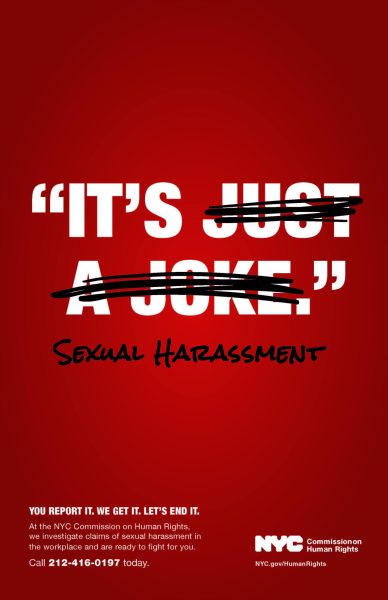
The “it’s just a joke” issue is a textbook scenario.
We shouldn’t have to educate educators about what kinds of things could constitute sexual harassment. These mentors are full-time NYC DOE employees who, according to the NYC Commission on Human Rights, must undergo New York City Sexual Harassment Prevention Training annually. Inappropriate joking is a common part of the sexual harassment training. We could not access the NYC DOE specific training, but this New York State sample training specifically lists a scenario where an employee “tells jokes that are degrading toward women” as “a reason an employee might file a harassment or discrimination claim.”
Any place where you must choose between “taking the joke” and feeling uncomfortable has the potential to create a “hostile environment,” something that is absolutely not allowed according to various city, state, and federal regulations.
These reasons alone are enough to ask that people take this seriously. This isn’t a PG-13 reference; it’s explicit and is not something that students should have to explain to their families or their friends just to be able to share their team’s efforts and accomplishments. The name takes away from their work and looks unprofessional not only at competitions but when referenced in passing.
Mentorship is required to ensure decisions like this do not compromise the integrity of the whole group. The mentors of the team are designated to be role models and guides for teenagers. This decision diminishes the significance of their role for a sexual joke.
“Hawk Tuah” in the context of the history of misconduct allegations during STEM extracurriculars at THHS
Having said all of the above, there’s a second major reason, more specific to THHS, as to why this must receive serious attention.
Sexual jokes, especially one as explicit as this one, shared between students and teachers can cross boundaries that should not be crossed. The THHS administration is familiar with such scenarios, particularly given the history of STEM extracurriculars at THHS.
It is a sad Classic tradition that incoming editors-in-chief take possession of the notes that have been curated over the years by other editors-in-chief regarding multiple past allegations of teacher misconduct at THHS. We have carefully reviewed those notes and learned important information about past issues related to STEM at THHS.
In 2016, chemistry teacher Thomas Sangiorgi was removed from THHS following sexual misconduct allegations made against him by various female students.
In 2021, while reporting on a separate story about sexual misconduct allegations against another teacher, The Classic obtained two “Special Commissioner of Investigation” reports that each describe multiple disturbing allegations against Mr. Sangiorgi, who was a celebrated chemistry teacher and also the Science Olympiad head coach (Mr. Sangiorgi did not return requests for comment before publication). In both reports, there were allegations of Mr. Sangiorgi being invasive in students’ personal space, touching them inappropriately, and saying inappropriate things to them in uncomfortable situations. One report specifically mentions his actions during an “after school program.”
Let us be clear: we do not bring this up to equate the allegations against Mr. Sangiorgi and the decision to name the 2025 Steel Hawks robot “Hawk Tuah.”
Rather, we are referencing this because Mr. Sangiorgi was heavily involved in the Science Olympiad team, and given the history of what has been alleged, we are here to say that there should never again be even a question as to whether or not STEM extracurriculars (or any extracurriculars) at THHS have an environment that is safe, appropriate, and inclusive for any student.
We have to be extra careful because of this history. Carelessness is unacceptable.
It’s important that educators understand why it is so crucial that they set appropriate boundaries.
WebMD lists “telling sexual jokes” as a “telltale sign” of sexual grooming behavior. This kind of behavior allows adults to stretch boundaries between them and children, testing reactions, and making such topics seem normal between them over time.
At one point, the 2016 report alleges that Mr. Sangiorgi would make “off color jokes.” The report reads, “Between September and December 2015, Sangiorgi made off color jokes to Student C. Although she did not remember the jokes, Student C recalled that Sangiorgi used the word ‘penis.’”
Again, we bring this up not to say that this is what is happening in 2025 on the robotics team. The allegations against Mr. Sangiorgi were pervasive and horrific — but there must never be so much as a faint echo of recurrence. Again, carelessness is unacceptable given this history.
Students should have been trained to know that this inappropriate name represented a “boundary crossing” and should have known to report it the school administration before it went to competition. They clearly did not.
For the coaches, one of many reasons not to approve such an explicit reference as “Hawk Tuah” as a public representation of the work of the entire team is that it has the potential to send the message that such behavior is appropriate in other, non-public contexts. The simple fact that we know the name was approved by the mentors should raise questions as to what environment currently exists that would make this sort of so-called “locker room talk” acceptable as a team name.
There must be firm boundaries, and teachers and students should never be close to a scenario where they are discussing a video about the best methods for pleasing men through oral sex.
In an interview with The Classic, Mr. Condon said, “The season is still ongoing. When it’s over, we do a post-mortem. I know they’re back on the 20th, so when we come back on the 21st, the season is over. We’ll begin the autopsy then.”
It is clear to us that the administration is taking this situation seriously, and we appreciate that. It’s clear that they’ve reported these allegations for investigation and have plans to review the team’s overall culture and environment, as they told The Classic in last night’s article. However, if the administration has any inclination that these adults are not well equipped to handle being professional around students, these concerns should be addressed before an overnight trip, not after it — or the trip should not proceed as planned with those adults.
Winning awards may be important, but it should go without saying that student safety should be at the forefront of everything.
In 2021, the then editors-in-chief of The Classic, writing about a different situation, made this vow when it came to covering stories about student safety at Townsend Harris: “Our newspaper will never let this story go.” Nor will we.
Moving forward, we will be closely monitoring the actions of the administration and those of the robotics mentors to ensure that due diligence is done to ensure the safety of our students.


























